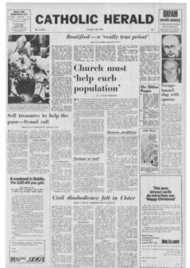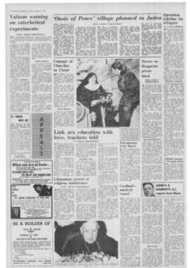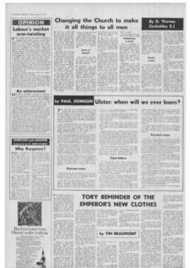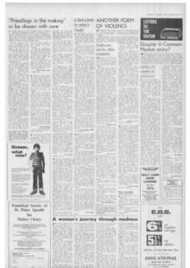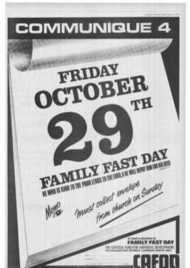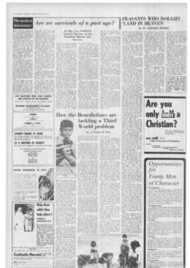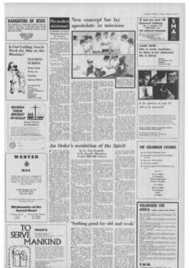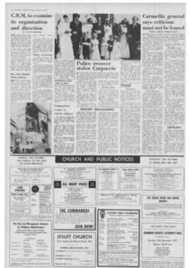Page 1, 22nd October 1971
Page 1

Report an error
Noticed an error on this page?If you've noticed an error in this article please click here to report it.
Tags
Share
Related articles
Beatification For Fr. Kolbe
Auschwitz Friar Dies
Maximilian Kolbe : The Model Priest
Fr Kolbe To Be Canonized
Cause Of Nazis' Priest Victim Opened
Beatified a 'really true priest'
FROM OUR ROME CORRESPONDENT IN laying down his life for a fellow prisoner in Auschwitz, the Nazi concentration camp, Fr. Maximilian Kolbe had shone forth as "a light, an illumination for complete dedication to the priestly mission," Pope Paul said when he beatified the Polish Franciscan in St. Peter's Basilica on Sunday.
In a seat of honour near the Papal Altar was former Polish Army Sergeant Franciszen Gajowniczek, now 70, the fellow-prisoner in place of whom 47-year-old Fr. Kolbe volunteered to die with nine other inmates, sentenced to death in reprisal for the escape of another prisoner.
Mr. Gajowniczek, who carried the chalice for the Mass to Pope Paul, wept during the ceremony. In an interview later, he said he thought Fr. Kolbe had offered to die for him, not only because he was a married man with children, but also because the priest wanted to be with the other nine condemned men until the end. He prayed with them and comforted them as, one by one, they died of starvation.
The priest was the last to die. Impatient guards injected him with carbolic acid's and incinerated his body in an Auschwitz oven.
Popes do not usually take public part in beatification proceedings. Pope Paul, in doing so, underlined his timing of the ceremony to take place during the Third Synod of Bishops. He had already spoken, at a general audience in St. Peter's, of Fr. Kolbe exemplifying "the really true priest." On Sunday, he again extolled him as such for the edification of bishops, priests and people.
Concelebrating Mass with
the Pope were Cardinal Stefan Wyszynski, the Polish Primate; Cardinal Karol Wojtyla, Archbishop of Krakow; Bishop an Zareha, of Wipclawek, who escaped from 3 Nazi camp; Cardinal John J. Kral, Archbishop of Philadelphia, who is of Polish origin; Archbishop Peter Seiichi Shirayanagi, of Tokyo. and the Minister General of the Franciscan Friars' Minor Conventual, Fr. Basilio Heiser.
The presence of Archbishop Shirayanagi recalled Fr. Kolbe's work as a missionary in Japan.
In his address, Pope Paul called the priest a superb example for modern times of dedication and selflessness. He
was a calm and pious hero, a wondrous figure of faith in an immense cavern of death, an exemplary champion of Christianity.
Speaking afterwards to crowds in St. Peter's Square, he said Fr. Kolbe seemed to represent "all the other obscure sacrifices consumed in that barbaric period."
Blessed Maximilian Kolbe is already internationally regarded as a "saint for our time." Another in this category was also a Nazi concentration camp victim—Fr. Titus Bransma, a Dutch Carmelite, who died in Dachau, and whose "cause" has gone forward.
Pictured right arc Blessed Maximilian Kolbe (top) and Franciszen Gajowniczek, now 70.
blog comments powered by Disqus


